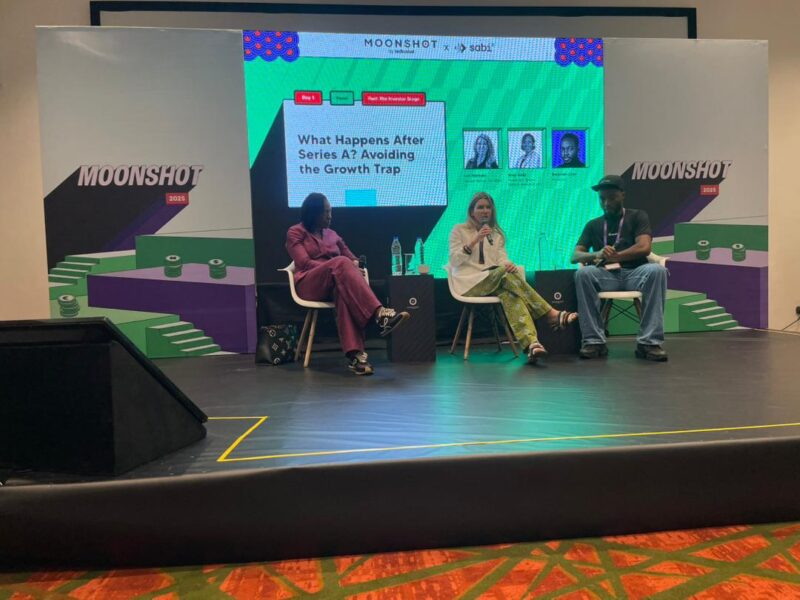For African startups, Series A funding no longer signals safety. It marks the beginning of the toughest test—whether a company can turn capital into discipline, growth into profit, and ambition into a business that survives without another cheque.
That was the takeaway from the “What Happens After Series A? Avoiding the Growth Trap” panel at Moonshot by TechCabal, where investors warned that the post-Series A phase separates the durable from the doomed.
Biola Alabi, investment partner at Delta40 Venture Studio, said the rules shift sharply after Series A because Series B investors are not betting on potential—they are measuring exits. “Your Series B investors are very different. They’re looking purely at how [you are] exiting.”
Many founders misread growth funding as validation rather than a mandate to rebuild their model around revenue and discipline. Without this pivot, startups risk falling into systemic pitfalls, including overspending, hiring too hastily, and running out of money before demonstrating financial stability.
Investors now want evidence of unit economics that justify higher valuations and a credible path to self-sustainability. Lexi Novitske, general partner at Norrsken22, said founders underestimate how long that takes.”I think many founders are thinking 18 months, but in reality, those cycles have become significantly longer… You have to assume like, 24 months,” Novitske said.
The founder’s own evolution is another test because once the Series A closes, the narrative changes.”You’re no longer seen as a startup. You’re seen as an established company.” That requires founders to stop managing every detail and start trusting a proper leadership team, a point at which many founders stumble.
Africa’s funding boom in 2021 masked many of these weaknesses. The year saw 47 Series A rounds, 12 Series B rounds, and three Series C rounds, according to Disrupt Africa’s funding report. The rush for growth bred habits of speed over efficiency, and those who grew up at that time are now struggling to stay lean.
Dependence on constant fundraising remains one of the most damaging patterns. Data from SRX Advisors shows that many companies collapse not from lack of capital, but from chasing it. Founders stuck in a perpetual raise cycle often neglect revenue models and cost control, focusing on short-term wins that undermine long-term stability.
Not every company should stay on the venture path. Novitske called this “growth trap”, adding that “as Series A, you need to assess what company you want to build, and if you don’t see a path for you, really, being a billion-dollar company, raising more money in the venture ecosystem is probably going to hurt you rather than help you.” For those founders, profitability, and not another funding round, might be the real exit strategy.








